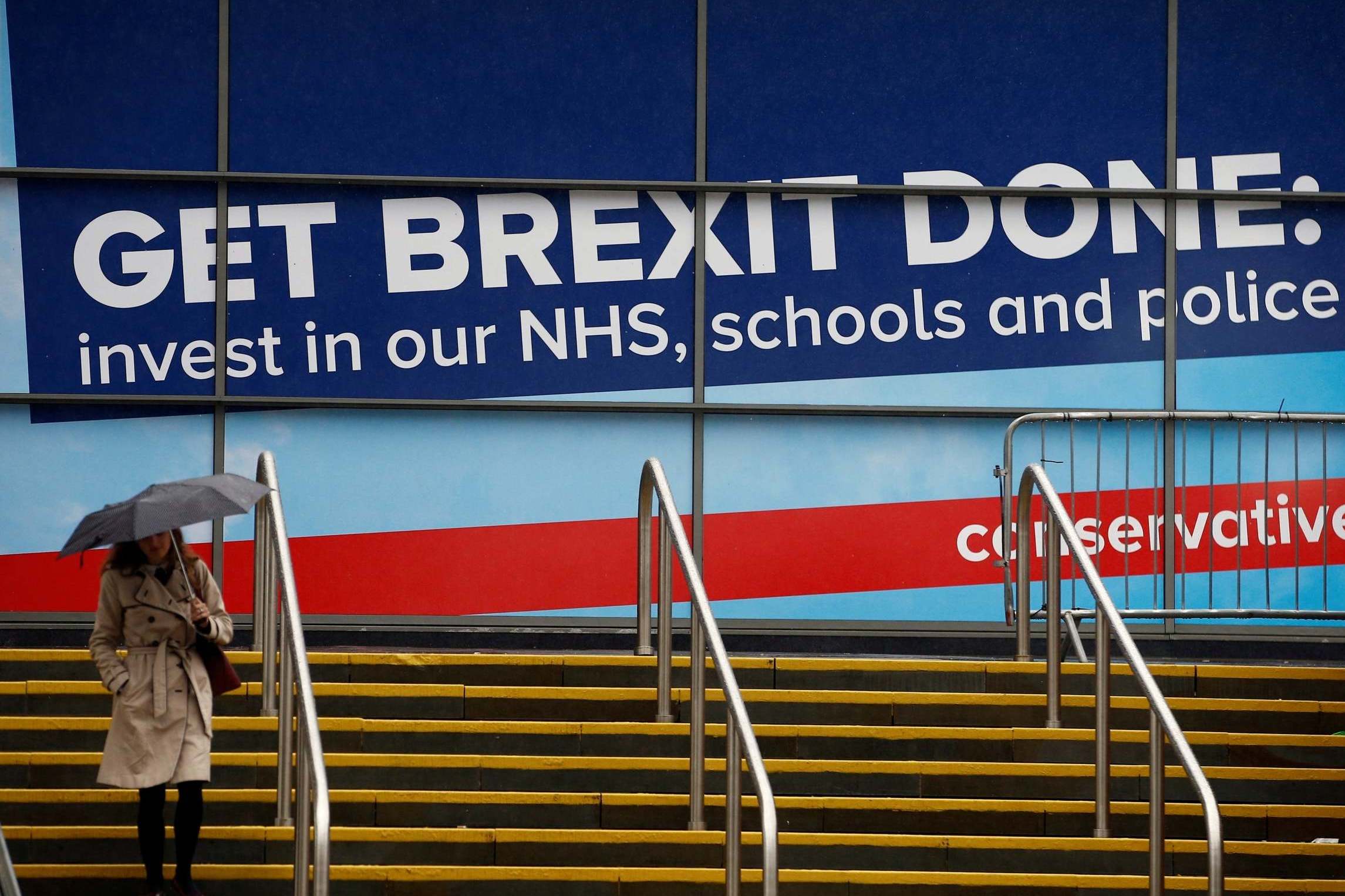The Conservative Party conference must raise its eyes beyond Brexit
Editorial: The Conservatives have the advantage of being in government – at least notionally – and so ought to be able to talk with more authority about realistic policies to improve Britain

It is symbolic that the party of government could not muster the votes in parliament to adjourn proceedings for the three days of its annual conference. Thus most Conservative MPs will be required to stay in London, in case the opposition mounts an ambush in the House of Commons, while only the chief panjandrums will travel to Manchester to address the nervous activists.
Yet the proceedings in Manchester will still be important, even if they do nothing to “get Brexit done”, which is the conference slogan. Because there is politics beyond Brexit; there are things the government can do, even without a majority in parliament; and there will, soon enough, be a general election.
So it is worth noting that Boris Johnson has shifted the Conservative Party’s policy on issues other than Brexit. Theresa May announced the end of austerity, and set out ambitious spending plans for the health service. But Sajid Javid, the chancellor, has now set out plans for a substantial increase in non-NHS public spending for next year, including higher funding for schools, police and social care.
Mr Javid’s spending review was almost forgotten in all the parliamentary excitement at the start of this month, as opposition MPs took control of parliament to pass a law against a no-deal Brexit. But it has shifted the centre of gravity of British politics.
Mr Johnson insists he is a liberal, One Nation Conservative. If he can ever gain a hearing above the cacophony of Brexit – much of the noise coming from him and his stirrer-up-in-chief, Dominic Cummings – it would be worth pitting his case against the emboldened statist instincts of the Labour Party.
At its conference this week, Jeremy Corbyn’s supporters pushed a long way beyond the mild social-democratic programme presented at the 2017 election. The party’s spending plans – extravagant in 2017 – have ballooned since then. Many of the objects are worthy, but they cannot all be affordable.
Labour’s unpopularity is concealed by the fragmentation of a two-party system into a four, five or six-party system, but Mr Corbyn seems to be going further away from the voters rather than towards them. The idea of a 32-hour working week, for example, might be taken as evidence of unrealistic utopianism, while the pledge to “abolish” private schools risks being seen as illiberal.
One thing that all three leading UK parties, and the Scottish National Party, are taking more seriously than ever this conference season is the environment.
The Conservatives have the advantage of being in government – at least notionally – and so ought to be able to talk with more authority about realistic policies to deliver better public services and to minimise the UK’s contribution to climate change.
In the next few days in Manchester they have the chance to show – beneath the bluff and bluster about Brexit – whether they have the seriousness of purpose to do so.
Join our commenting forum
Join thought-provoking conversations, follow other Independent readers and see their replies
Comments